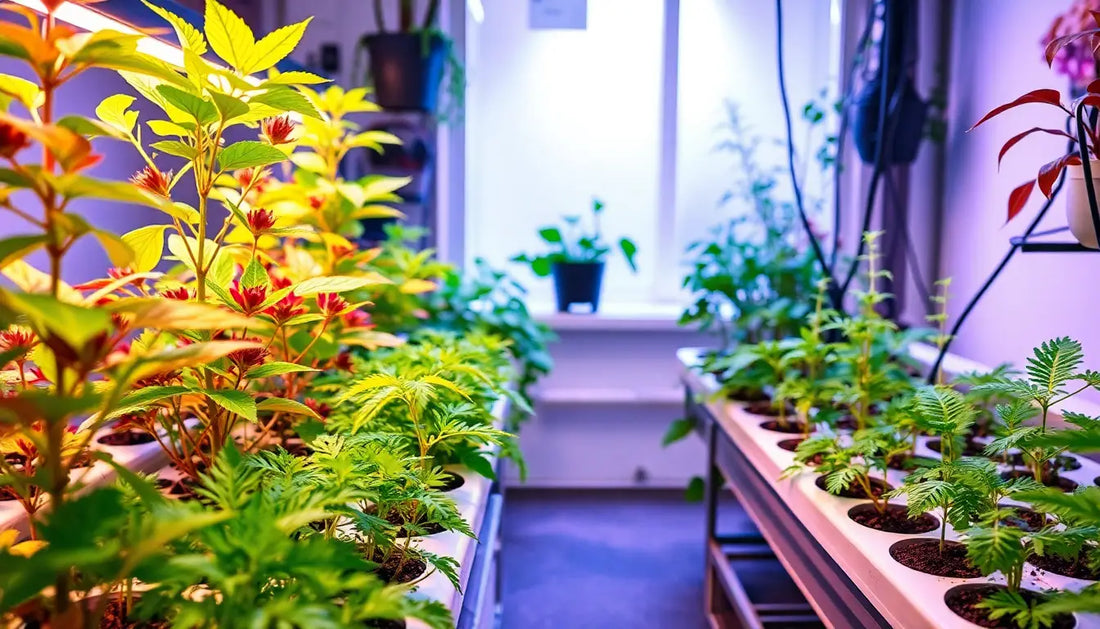
Top Benefits of Hydroponic Gardening
Share
Introduction
Hydroponic gardening is revolutionizing how we grow plants, offering an efficient way of cultivation without soil. From small herbs to large crops, hydroponics allows gardeners at all levels to thrive, even in limited spaces. Understanding the advantages of this innovative gardening method is crucial for anyone interested in sustainable practices.
Understanding Hydroponic Gardening
Hydroponics is a method of growing plants in nutrient-rich water instead of soil. This technique allows plants to access nutrients directly, leading to faster growth and larger yields. There are various hydroponic systems, including nutrient film technique (NFT), deep water culture (DWC), and aeroponics, each providing unique benefits and suitability depending on the gardener's needs.
Hydroponic Gardening Advantages
Sustainable Agriculture
Hydroponic gardening plays a significant role in fostering sustainable agriculture. By eliminating the need for soil, we can reduce the risk of soil degradation and erosion. Additionally, hydroponics uses significantly less water than traditional farming methods. This reduction is crucial, especially in water-scarce areas, and supports the broader goal of conserving our planet's vital resources.
Year-Round Gardening
One of the most notable hydroponic gardening advantages is the ability to grow crops year-round. Hydroponics offers flexibility, letting gardeners produce fruits and vegetables outside the traditional growing seasons. This advantage means you can enjoy fresh produce during winter months or periods of drought, leading to a more resilient food supply, which is essential for local communities and food security.
Urban Gardening Potential
Space-Saving Techniques
Urban gardening is transforming city landscapes, and hydroponics is at the forefront of this movement. Space-saving techniques, such as vertical gardening, enable urban gardeners to maximize small areas. Hydroponic systems can be stacked or arranged to utilize vertical space effectively, making it possible to cultivate a wide variety of plants in limited conditions.
Accessibility for Urban Dwellers
Hydroponics makes gardening accessible for those living in small apartments or homes with limited outdoor space. Setting up a system on a balcony or even in a kitchen can encourage individuals to grow their own food. Community projects centered around urban hydroponics also promote collaboration and knowledge sharing amongst neighbors, enhancing community ties.
Economic Benefits of Hydroponic Gardening
Cost-Effectiveness
Although the initial investment in hydroponic systems can be high, the long-term savings often far outweigh the costs. With reduced water bills and the ability to produce more crops in less time, many growers see a marked improvement in profitability. The potential to run a hydroponic farm can provide fresh produce directly to local markets, adding to the economic benefits of hydroponics while serving a growing demand for organic produce.
Job Creation in Urban Areas
Hydroponic gardening also creates numerous job opportunities, particularly in urban settings. As community gardens and commercial hydroponic farms expand, they require skilled labor, leading to job creation within local economies. This growth supports sustainable practices, reducing reliance on imported goods and contributing to a circular economy.
Nutritional Advantages of Hydroponically-Grown Produce
The nutritional profile of hydroponically-grown produce often surpasses that of traditionally farmed crops. Studies show that hydroponic veggies can have higher levels of vitamins, minerals, and antioxidants due to the controlled nutrient environment. As food security becomes an increasingly pressing issue, the ability to grow nutrient-rich crops efficiently and sustainably through hydroponics is crucial.
Challenges and Solutions
Common Obstacles in Hydroponic Gardening
While hydroponic gardening offers numerous advantages, challenges exist. The initial setup cost and the level of technical knowledge needed to maintain systems can deter beginners. However, these challenges can be managed with the right approach.
How to Overcome These Challenges
For those new to hydroponics, starting with small, simple systems is advisable. Many resources are available online, from instructional videos to community forums where experienced growers share insights. Local gardening stores may also provide support and advice to help newcomers navigate the learning curve.
Conclusion
In summary, the hydroponic gardening advantages make it a compelling choice for both novices and experienced gardeners. With its emphasis on sustainability, economic growth, and enhanced nutrition, hydroponics offers a viable solution to modern agricultural challenges. Whether for urban settings or personal gardens, starting a hydroponic garden can pave the way for a more sustainable future. Embrace these benefits and embark on your journey toward sustainable gardening today!














